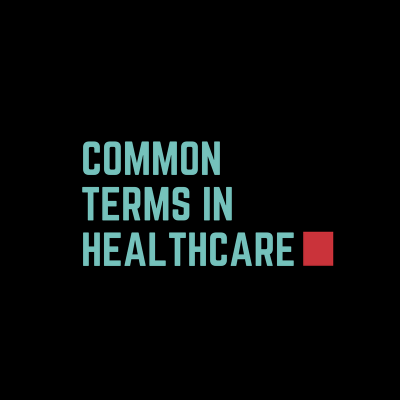Common Terms In Healthcare
The healthcare industry can be difficult to navigate, and it is only made more difficult by the abundance of terms and abbreviations used. Below you will find terms and abbreviations MediCopy commonly uses:
Health Insurance Portability and Accountability Act (HIPAA): A US law designed to provide privacy standards to protect patients' medical records and other health information provided to health plans, doctors, hospitals, and other health care providers. Developed by the Department of Health and Human Services, these new standards provide patients with access to their medical records and more control over how their personal health information is used and disclosed. They represent a uniform, federal floor of privacy protections for consumers across the country. State laws providing additional protections to consumers are not affected by this new rule.
Read more here: https://www.hhs.gov/hipaa/for-professionals/privacy/laws-regulations/index.html
Family Medical Leave Act (FMLA): A United States labor law requiring covered employers to provide employees with job-protected and unpaid leave for qualified medical and family reasons.
Read more here: https://www.dol.gov/general/topic/benefits-leave/fmla
Health Information Technology for Economic and Clinical Health Act (HITECH): Legislation that was created to stimulate the adoption of electronic health records (EHR) and the supporting technology in the United States.
Read more here: https://www.hhs.gov/hipaa/for-professionals/special-topics/hitech-act-enforcement-interim-final-rule/index.html
Release of Information (ROI): A release of information is a statement signed by the patient authorizing a contact person to provide health/medical information about the patient’s situation.
Read more here: http://bok.ahima.org/doc?oid=85544#.WwbIk5PwZBw
Electronic Medical Records (EMR): This refers to everything you’d find in a paper chart, such as medical history, diagnoses, medications, immunization dates, allergies.
Read more here: https://www.practicefusion.com/blog/ehr-vs-emr/
Electronic Health Records (EHR): Digital records of health information. They contain all the information you’d find in a paper chart and more. EHRs include past medical history, vital signs, progress notes, diagnoses, medications, immunization dates, allergies, lab data and imaging reports. They can also contain other relevant information, such as insurance information, demographic data, and even data imported from personal wellness devices.
Read more here: https://www.practicefusion.com/blog/ehr-vs-emr/
Public Health Information (PHI): Health information that is protected under HIPAA.
Read more here: https://www.hipaa.com/hipaa-protected-health-information-what-does-phi-include/
Health Information Management (HIM): Information management applied to health and health care. It is the practice of acquiring, analyzing and protecting digital and traditional medical information vital to providing quality patient care.
Read more here: http://www.ahima.org/careers/healthinfo
Health Information Exchange (HIE): This allows health care professionals and patients to appropriately access and securely share a patient's medical information electronically.
Read more here: https://www.healthit.gov/topic/health-it-basics/health-information-exchange
Healthcare Effectiveness Data and Information Set (HEDIS) Audit: The goal of these audits is to ensure accurate, reliable, and publicly reportable data that can be used by purchasers and consumers to compare managed care organizations.
Read more here: http://www.ncqa.org/hedis-quality-measurement/data-reporting-services/hedis-compliance-audit-program/hedis-compliance-audit-program
Risk Adjustment Data Validation (RADV) Audits: The Centers for Medicare and Medicaid Services (CMS) performs RADV audits to validate the accuracy of the HCC (Hierarchical Condition Category) codes submitted by MA (Medicare Advantage) plans for payment.
Read more here: https://www.aapc.com/risk-adjustment/faq/what-is-radv.aspx
Accounting of Disclosure: This log is to record any disclosure of the patient’s protected health information that is not for treatment, payment, or health care operations, or pursuant to the patient’s Authorization or otherwise excepted from the patient’s right to receive an Accounting.
